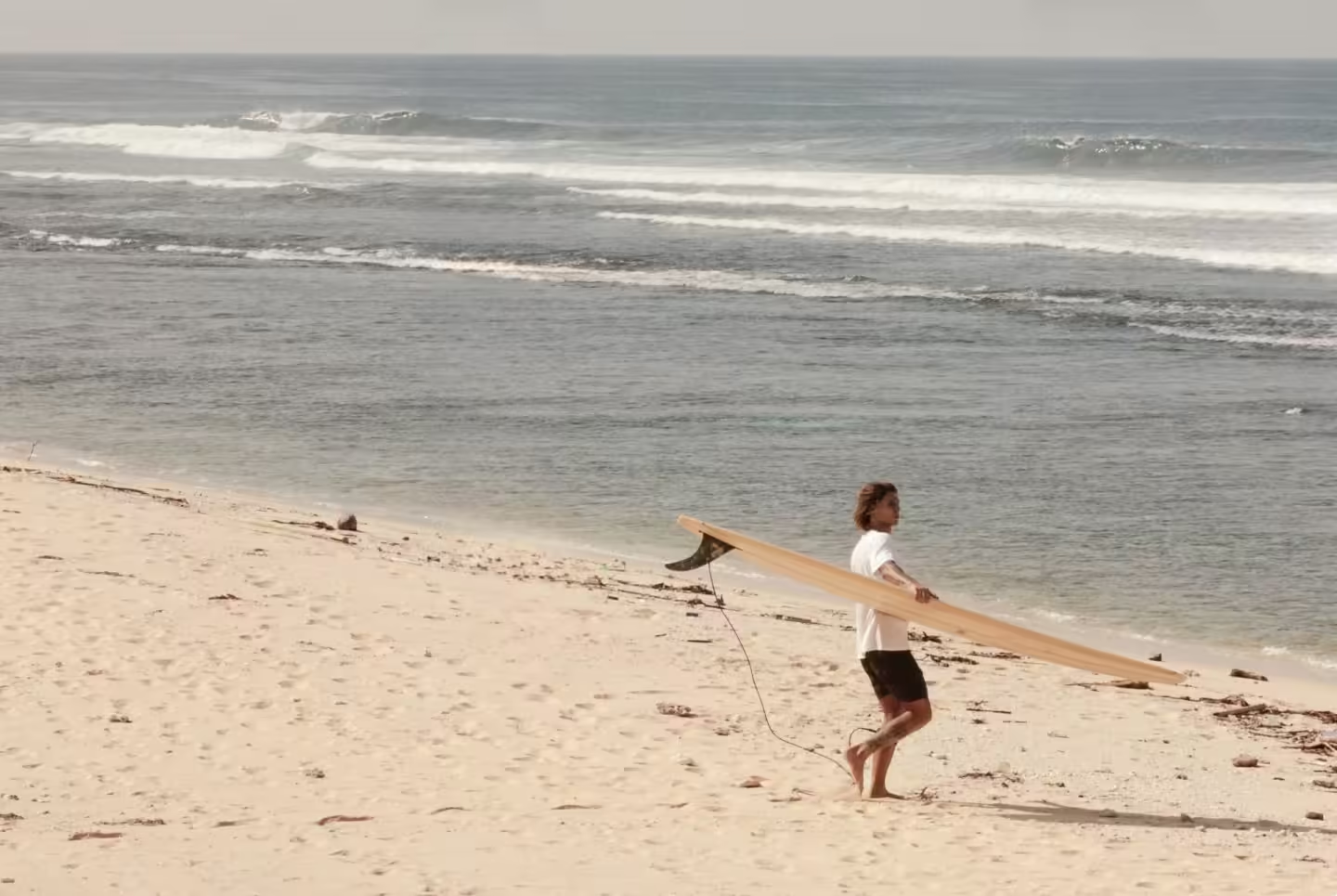What It’s Like Being A Landlocked Surfer
Surfing is an activity that the majority of people associate with living near the coast and plenty of waves. For landlocked surfers, however, this isn’t the case.
Landlocked surfers are those who live far from the ocean but still continue to surf and pursue their passion for wave riding despite the challenges they face.
As a landlocked surfer, you may often find yourself daydreaming about the endless waves and tropical waters of far-off shores.
And being landlocked may seem to have many challenges, even though, these can be encountered.
In the last post, we identified who is considered to be a landlocked surfer and how they can practice while being far away from shore.
In this post, we’ll explore the unique challenges and opportunities of being a landlocked surfer and how to keep the stoke alive when the nearest ocean is miles away.
Challenges of Being Landlocked
For many surfers that live near the beach, they could just walk their way or drive for a while to ride the upcoming swell.
On the other hand, landlocked surfers often have to go through a lot of trouble to even get in the water – which can include driving for hours or taking multiple means of transportation.
Imagine waking up in the morning, getting excited for the stoked vibes and waves that are coming, but as a landlocked surfer, you have to plan that in advance.
For landlocked surfers, living far away from the ocean can be a major challenge. Without easy access to waves, it can be difficult to stay connected to the activity and maintain their surfing skills.
Landlocked surfers may have to travel long distances or make special arrangements in order to get in the water, which can be time-consuming and expensive.
Being located far from a coastline comes with many difficulties, not only in terms of finding waves and traveling long distances but also financially.
Surfboards and wetsuits can be expensive and difficult to come by, especially in rural areas away from coastal towns.
Of course, you can buy them online but sometimes you just don’t know how it fits and just gotta test your gear out.
Unfortunately, landlocked surfers can also face disrespect from locals living close to coasts as they are unjustifiedly not considered true members of the surfing community.
This can make it hard for them to feel accepted into this lifestyle and gain access to insider knowledge that locals may be able to share with each other more easily due to their proximity.
Not to mention the feelings of some local surfers towards landlocked surfers or just newcomers, who feel that landlocked surfers just show up to their beaches and take all the waves.
Landlocked surfers may not always receive respect from local coastal communities but that doesn’t mean that their passion for surfing should be dismissed or overlooked.
It takes dedication and commitment for them to pursue their sport despite living far away from the ocean – something that should definitely be admired.
It is understandable why some locals might get frustrated with these out-of-towners, but it’s important for both sides to respect each other and understand that everyone has the right to enjoy our ocean no matter where they live, especially those who just have no other choice and still want to enjoy surfing.
Opportunities of Being Landlocked
Despite these difficulties, there can also be benefits associated with being a landlocked surfer.
Having limited access to waves may mean that you value them more than others; every session could potentially become a special experience due to its rarity compared to surfing every day as some beach-goers are able to do.
Also, traveling regularly can broaden your perspective both literally and metaphorically; seeing different cultures provides invaluable exposure which could improve your outlook on life in general and inspire new adventures in other parts of the world offhandedly related or unrelated entirely to surfing.
Moreover, with limited access to waves, you can find yourself honing in on different aspects of the surfing lifestyle – such as improving certain techniques or working on your fitness so that when you do have the opportunity to get out and surf, you are able to make the most of it.
And a bonus benefit is since their equipment is not exposed to saltwater and other elements on a regular basis like those of coastal surfers, their boards tend to last longer and require less maintenance than coastal boards do.
Landlocked surfers should therefore never lose motivation nor give up their dream of catching waves no matter where they live, even if it seems hard at times it’s important not to forget why we love surfing so much!
Conclusion
So being a landlocked surfer can be tough at times but it doesn’t mean that you can’t enjoy the lifestyle of surfing just as much as coastal surfers.
The key is to make the most of your opportunities and remain positive about your situation. There are always unique experiences waiting for you if you are willing to seek them out and stay dedicated.
So no matter where you live, remember to never give up on your dreams of surfing the perfect waves and enjoy every moment that brings you closer to achieving it.



